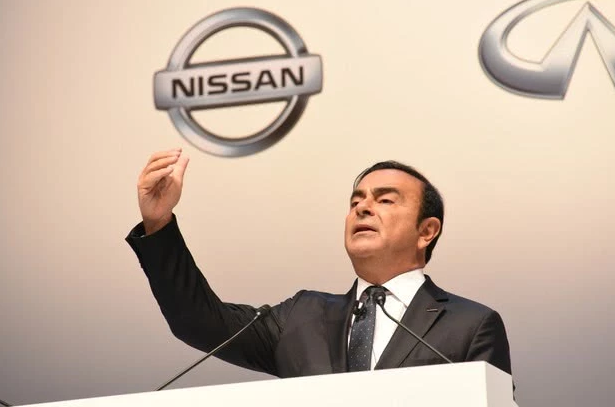JUDY WOODRUFF: A man named Carlos Ghosn was once in the driver's seat of two of the world's most iconic automakers, and was credited for both, for saving both from insolvency. But he went from the heights of the corporate world to criminal allegations, a record bail, and now his mysterious escape from Japan to Lebanon. John Yang reports.
JOHN YANG: Reporters huddled outside a Beirut house this morning, hoping to catch a glimpse of ousted Nissan Motors chief Carlos Ghosn, once a CEO, now an international fugitive. In Tokyo, prosecutors raided his home there, searching for clues to how the high-profile businessman, facing trial for alleged financial misconduct, mysteriously escaped house arrest and embarked on a flight to freedom. Ghosn was reportedly smuggled out of Japan on his private jet. He stopped in Istanbul, before arriving on New Year's Eve in Lebanon, where he is a citizen. Today, Turkish officials arrested seven people, including pilots, for allegedly taking part in the escape. And Lebanon received a notice from Interpol, the international policing organization, calling for Ghosn's arrest. Lebanon's justice minister said, even though Ghosn had entered the country legally, they would comply with the request.
ALBERT SERHAN, Lebanese Justice Minister (through translator): I suppose the general prosecution will fully implement the notice, and that includes summoning him and listening to his testimony. And then, if there are measures to be taken, then they will be taken.
JOHN YANG: But Lebanon has no extradition treaty with Japan. What's more, Ghosn also holds Brazilian and French citizenship. French officials have said, if Ghosn arrived in France, he would receive support.

AGNES PANNIER-RUNACHER, French Secretary of State for Economy and Finance (through translator): If a foreign citizen was fleeing the French judicial system, we would be very angry. On the other hand, he is a Lebanese, Brazilian and French citizen, and he benefits from consular support, like all French citizens.
JOHN YANG: Before his ouster in November 2018, the automotive titan oversaw both Nissan and the French carmaker Renault. He was credited with rescuing both from near bankruptcy by closing plants and cutting thousands of jobs. But Japanese prosecutors say he also lavishly enriched himself by under-reporting his income and funneling payments to car dealerships he controlled in the Middle East. Ghosn posted a record $14 million bail last April, and was confined to house arrest, under 24-hour surveillance. He reportedly decided to leave Japan after learning that his trial would be delayed until April 2021. In a statement, Ghosn said he had jumped bail to escape injustice and political persecution in Japan. Today, he discredited theories that his wife had engineered his escape as inaccurate and false. Ghosn said he will speak to reporters next week. For the PBS NewsHour, I'm John Yang.












